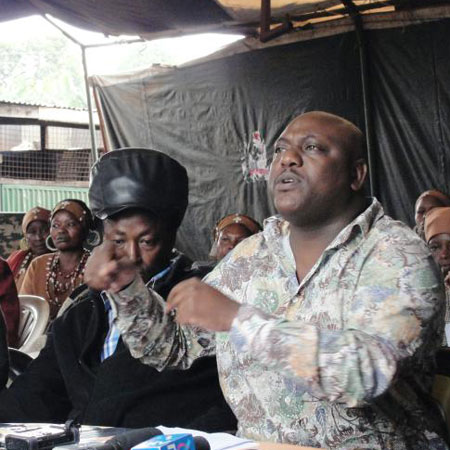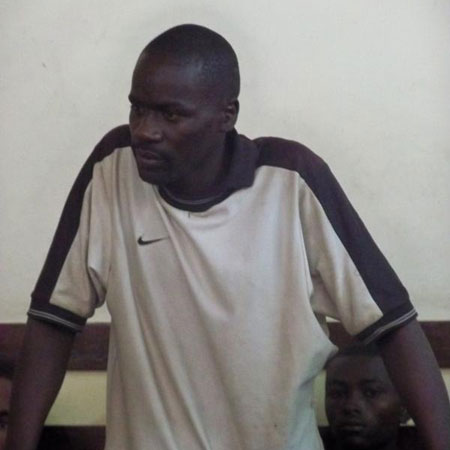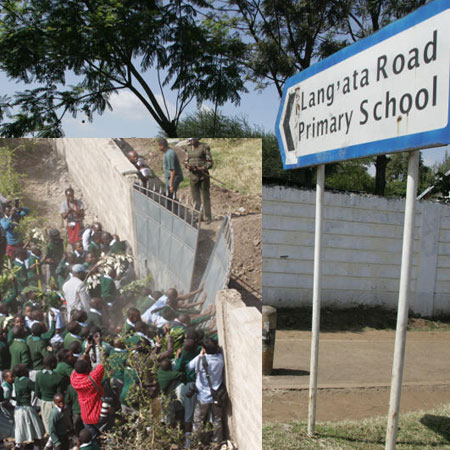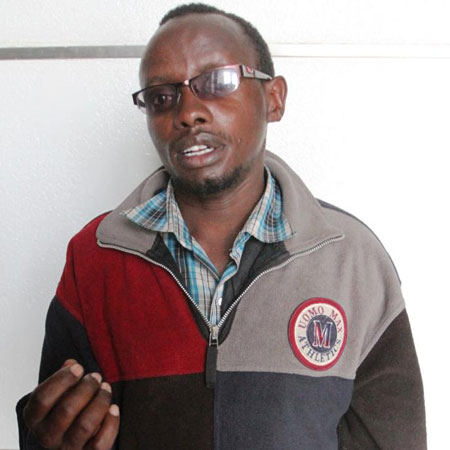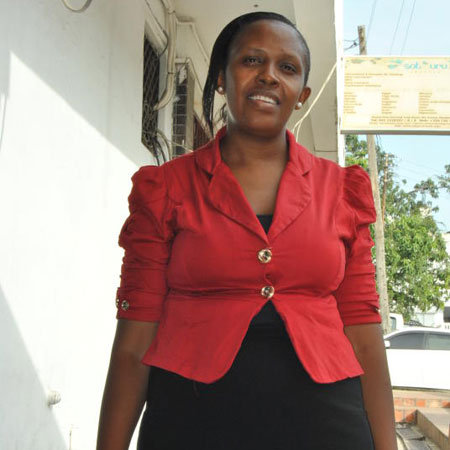
Public city schools, hospitals and key public installations that experience high human traffic flow are poorly guarded and expose learners, patients, workers and visitors to risk because they could be sitting ducks for terrorists, 'The Nairobian' can reveal.
The only time surveillance is stepped up is when terrorists strike elsewhere. As soon as the devastating effects are over, vigilance is forgotten and people slide back into their usual lax mode.
A spot check at some city schools and hospitals established that the institutions are vulnerable; the level of security is either too low or, altogether, non-existent.
One would expect to be restrained by mean-looking security guards armed with rungus and metal detectors, but this is rarely the case. It is quite normal for a visitor or stranger to breeze through the gate of a school or hospital unchallenged.
David Kitavi, the chairman of the education committee at the County Assembly, described the situation in public schools as serious but was quick to add that they are drafting a legislation that will make it mandatory to provide security in schools.
He said the Inspectorate Department withdrew askaris citing lack of staff and money.
"Actually I agree with you," he said. "Our schools are prone to attacks. We asked the enforcement officer why the askaris were withdrawn and he told us that the schools were not a priority. But we can not just sit and watch. We are preparing a motion that will bring back askaris to all schools," said Kitavi.
Kenyatta National Hospital (KNH), the largest medical referral facility in East and Central Africa, seems unable to provide water-tight security. For instance, there is hardly any screening of motorists at the main entrance. They are merely issued with gate passes which grants them access to the parking yard.
However, although visitors to clinics and wards are thoroughly screened, no similar checks are carried out at the Private Doctors Plaza and Accident and Emergency Unit, which can be used to reach the clinics and wards as well. Still, a criminal mind can cause damage from the unsecured parking yard.
Simon Ithai, the hospital's communications manager, acknowledged 'the challenges', which he promised would be addressed. He admitted it was difficult to provide security to about 30,000 people who report to KNH on a daily basis.
"What you are saying is true, but it is not good to expose our weakness to the enemy," pleaded Ithai. While he said police officers are stationed at the Accident and Emergency Unit security is not as tight at the Private Doctors Plaza because of the low number of visitors going there.
Musau Ndunda, the Secretary-General of Kenya National Association of Parents said they will, on January 31, launch a report on disaster preparedness and security in schools, adding that a survey they carried out indicated that many learning institutions had no proper security measures in place.
"The safety of our children is not guaranteed," said the Ndunda, citing a city primary school he claimed was most vulnerable because unchecked motorists park their cars outside the institution.
"In the evening just take a look at the school and you will be surprised at the level of laxity and vulnerability our children are exposed to. What happens if some of these motorists turn out to be kidnappers?" he asked.
The study carried out in 5,000 schools, established that 96 per cent of them were prone to disasters, according to Musau who said respondents who included teachers, support staff and parents said they had no capacity to deal with disasters and general insecurity.
He revealed that the study also focused on security guards, who reported that they were ill-equipped. Ndunda claimed that since 2013, his association has engaged in a nationwide sensitisation programme on security in schools.
Side bar: From churches and pubs to 'soft' targets
Hospitals aside, more alarming is the fact that the main water reservoir in a high-end estate is never guarded despite its perimeter wall having been pulled down due to a protracted land dispute between the county government and private developers. Both parties are claiming ownership of the land.
A senior officer expressed fears, warning that the reservoir is an easy conduit for unspeakable damage.
"When I pass by that place and see how the tank is exposed, I shudder at what would happen if terrorist poisoned the water. But we don't want to pinpoint such lapses because it could lead to despondency and panic," said the officer.
Another senior officer disclosed how they rushed to put up an AP post at the Ndakaini Dam after getting wind of a plan by terrorists to sneak poison into the water reservoir.
He said terrorists were turning to soft spots, citing the massacre at a quarry in Mandera on December 1, 2014. He cautioned the public to be vigilant all time and stop assuming that entertainment spots, churches and shopping malls are the most vulnerable to attacks.
In the city, it is typical for patrons to bars and supermarkets, and church goers to be searched and frisked. The same sense of vigilance is barely demonstrated in schools and hospitals, yet, according to experts and stakeholders, they are soft spots for terrorists.
Richard Tutah, a terrorism expert says it is an oversight to ignore guarding schools and hospitals, especially KNH which he equates to a strategic installation.
He recommends that private security guards should be trained and armed, arguing that police are overstretched and therefore can not be deployed everywhere. Tutah claims lack of a standardised security policy meant that officers were deployed to buildings housing top government officials.
To him, this is a wrong approach. He wants even provision of security in all places. "We have been made to believe that terrorists only target particular places like bars and supermarkets. They hit anywhere where human beings are to be found because they want to cause maximum damage," he explained.
Tutah believes that schools in high-end areas are more vulnerable than those found in informal settlements and insists that a tight security cordon, similar to that at Forces Memorial Hospital, should be thrown around KNH.
"We have never thought that an AP (Administration Police officer) can guard a school or hospital, which are soft spots. Let us license security guards to have guns. Security firms can also employ from the National Youth Service. Alternatively, we can train guards at police institutions in Embakasi," he said.
Security analyst Twalib Mbarak said the country lacked a water-tight solution to the terrorism problem, adding that entry into schools and hospitals should be controlled through erection of barriers, vetting of visitors and establishing their identities.
"There is no security around hospitals and schools. Unfortunately there is no government in the world that can deploy security officers everywhere. But that is not an excuses, we need to map out all areas and critical installations besides embracing coordination between the government and public," he stated.
Administration Police Service spokesman Masoud Mwinyi said they regularly liaise with the two institutions with the intention enhancing security, adding police have relentlessly advised private security firms to hire credible and reliable employees.
"Even though schools and hospitals may have their own security arrangements, we compliment by interacting with them by offering advise on deterrent measures," he said.
Side bar: Should watchies be armed with guns?
On April 14, 2014, Boko Haram militants raided a school in Chibok, Nigeria, kidnapping about 276 schoolgirls. The whereabouts of most of the girls remain unknown to date. Some managed to escape from captivity.
On 16 December 2014, nine gunmen linked to terror outfit, the Tehrik-i-Taliban (TTP) raided Army Public School in Peshwar town of Pakistani killing 145 people, including 132 school children.
Locally, though some schools and hospitals have employed guards, but the watchmen are poorly paid, trained and equipped. They therefore offer no serious deterrence.
Kenya National Private Security Workers' Union (KNPSU) Secretary-General Isaac Andabwa said his guards are vulnerable due to lack of training and proper working tools. Guards are armed with rungus and whistles – tools Andabwa believes are of the past when crime had not become sophisticated.
He said it was not necessary to equip all guards with guns, but ensure proper processing of information and intelligence that comes their way. The official claimed State security agents rely heavily on the intelligence from his members.
"Guns not really important but sharing of information and intelligence. Guns can be given to a select few. But it is instructive to note that guards are the first people on the line of defense. They are expected to protect life and property, and again, you can't do much with a rungu because of the security dynamics," he stated.
He claimed once the Private Security Regulation Bill, 2014 becomes law, the sector will be professionalised because it will be regulated. The Bill has been forwarded to the Attorney General for publication.
"My prayer is that one day the government will see sense. The police rely on guards 80 percent for information, so why can't we rely on them if they are playing such a critical role," noted Andabwa.
Among other stringent measures, the new anti-terror legislation requires journalists to obtain police permission before investigating or publishing stories on domestic terrorism and security issues.
 The Standard Group Plc is a multi-media organization with investments in media platforms spanning newspaper print
operations, television, radio broadcasting, digital and online services. The Standard Group is recognized as a
leading multi-media house in Kenya with a key influence in matters of national and international interest.
The Standard Group Plc is a multi-media organization with investments in media platforms spanning newspaper print
operations, television, radio broadcasting, digital and online services. The Standard Group is recognized as a
leading multi-media house in Kenya with a key influence in matters of national and international interest.

